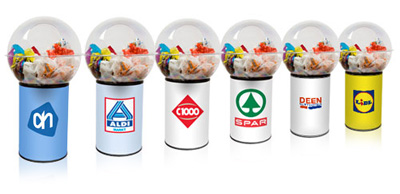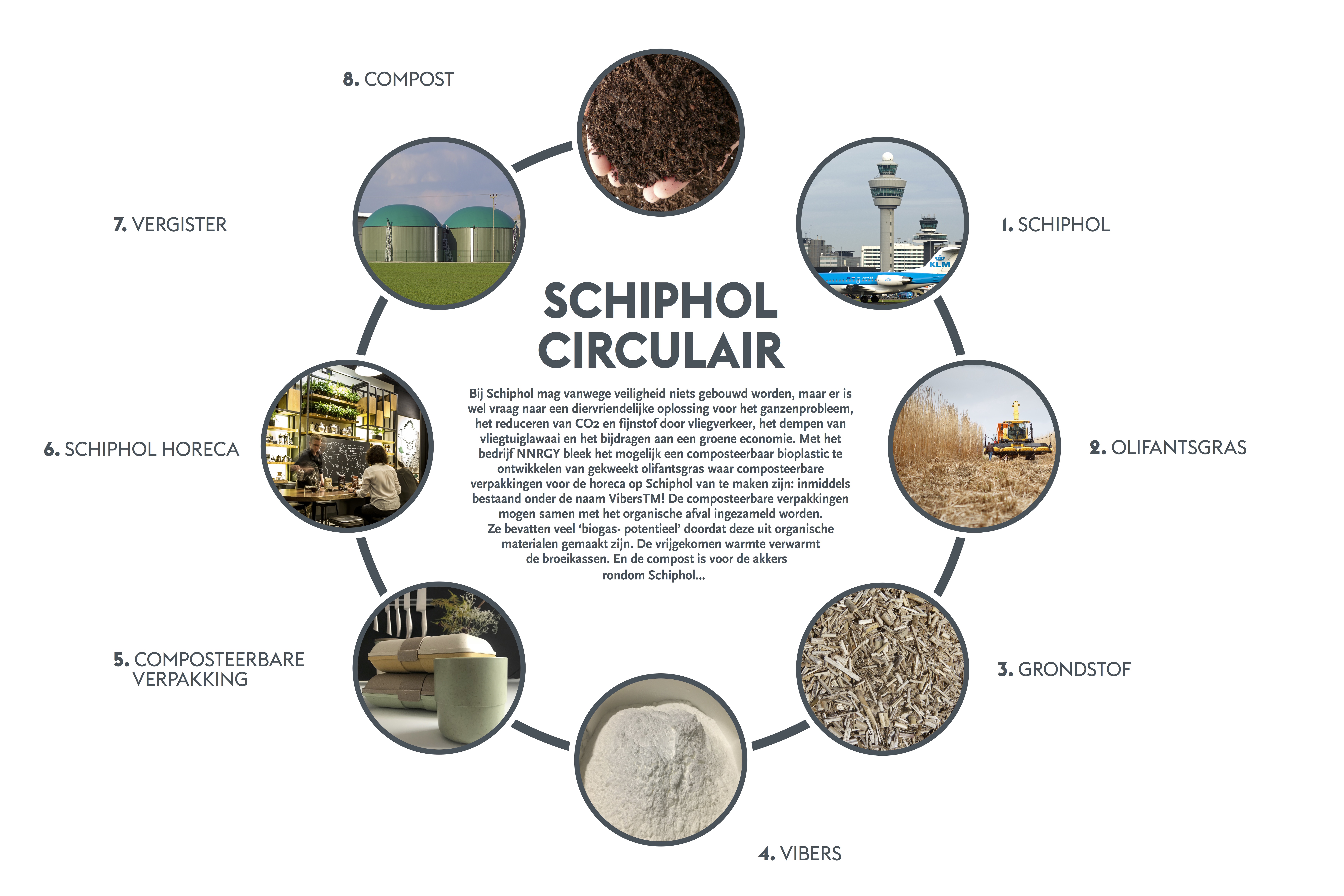Circular Concepts
Our goal is to accelerate the circular and biobased economy: the circular bio-economy. From crop to end-of-life, but actually from raw material to raw material. Green Serendipity develops innovative concepts and also implements these concepts on commission.
Green Serendipity offers consultation on circular and reuse concepts. For more information or to book a consult: info@greenserendipity.eu.

TassenBol / BagBubble
The first concept of Green Serendipity was the international price winning concept ‘TassenBol‘, developed in 2005. It was the first circular concept in the EU that was based on reusing plastic packaging by making re-use of plastic bags very easy including raising environmental awareness about plastics among retailers, consumers and government. The Tassenbol project received many awards like the international award ‘Mission Sustainability’ which was handed over by Angela Merkel in 2007. The lessons learned are still very valuable for retailers, brand owners, governments and municipalities in making the right choices about reuse, (bio)plastics and (biobased) packaging and in creating circular concepts.
Green Serendipity’s first concept was the international award-winning concept ‘TassenBol‘, developed in 2005. It was the first circular concept in the EU based on reusing plastic bags by making reusing plastic bags very easy, including raising environmental awareness about plastic among retailers, consumers and government. The TassenBol (aka BagBubble) received many awards, including the international ‘Mission Sustainability’ award presented by Angela Merkel in 2007. The lessons learned are still very valuable for retailers, brand owners, governments and municipalities.
Schiphol Circular Packaging Concept

There are a lot of agricultural fields around Schiphol Airport. For safety reasons, it is not allowed to use it as farmland or for other purposes. But same as many other airports, Schiphol has a problem with birds (mainly geese) that disrupt air traffic.
Schiphol decided together with an alliance of farmers to start with the cultivation of Miscanthus Giganteus aka ‘elephant grass’. This is a high-growing grass in which birds cannot land and which absorbs a lot of greenhouse gas and also has a sound-absorbing effect.
However, also these crops need to be mowed from time to time and the farmers wondered how to be able to valorise the yield.
Solution:
To develop a circular elephant grass-based bioplastic for applications such as catering materials and packaging to use at Schiphol Airport itself (a huge market with more than 60 million passengers a year, all eating and drinking).
This innovative bioplastic is at this moment already commercially available under the brand name Vibers. Initial samples of thermoformed packaging and injection moulded products showed great potential.
As Schiphol is a closed-loop facility, catering materials and packaging can be collected together with food waste quite easily and taken to the nearby anaerobic digester. In this anaerobic digester, fibres or other valuable nutrients can first be recovered for reuse. Then the organic waste including the biobased materials can be converted into biogas. Compostable bioplastics have a high biogas output. This biogas can be converted into ethanol, which can be the start of new building blocks for new (food-safe) bioplastics.
The captured CO2 goes through a pipeline to nearby greenhouses as feed for plants. The remaining digestate can, if the quality is excellent, be sold as fertilizer or used on the fields around Schiphol. If the quality is not sufficient enough, it can be used for green energy. Even the remaining captured CO2 can be reused in the future to produce new bioplastics (such as AirCarbon made from CO2).
Green Serendipity developed this circular concept in cooperation with the Schiphol Group, HMSHost, Vibers, Suez, the Miscanthusgroep, Meerlanden, Bunzl and Dutch government (RWS). It is a perfect example of the circular bio-economy of the future: how to keep your raw materials, your processing, production, end-of-life but also your economic earnings within 1 region, country or continent. And additionally how you can reduce CO2 emissions, how to provide biogas and green energy of a waste material and how valuable nutrients and raw materials can again serve as input for new raw materials. A perfect closed loop…
View Dutch version here: Schiphol Circulair – de toekomst in praktijk
Green Serendipity offers consultation on circular and reuse concepts. For more information or to book a consult: info@greenserendipity.eu.
